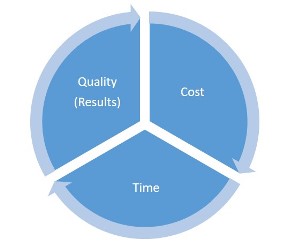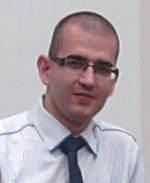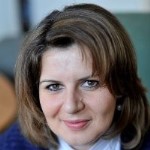for Achieving a Better Project Result
FEATURED PAPER
János Varga, Ph.D
Óbuda University, Keleti Faculty of Business and Management
and
Ágnes Csiszárik-Kocsir, Ph.D habil
Óbuda University, Keleti Faculty of Business and Management
Budapest, Hungary
ABSTRACT
1970 can be considered a very important milestone of globalization. Multinational companies around the world have been expanding at a remarkable speed, and have made not only the global economic system but their own internal operations even more complex. There is a legitimate demand from companies for a management area that can handle and manage complex tasks more efficiently. Project management appeared in the operation of organizations, which could not have been more effective in people-to-people collaboration, given that people (project teams and project managers) work together on projects. The XXI century increased the value of projects in the life of companies. Our economic system has not become simpler, and the tasks that companies need to manage on a daily basis have been further complicated. Having a really good project manager has become a key issue for project success, because without proper project management practice, teamwork cannot be effectively coordinated. What kind of person should be an effective project manager? What does a good project manager need to know nowadays? This study addresses these issues and attempts to summarize the characteristics of a good project manager.
Key words: project, project management, project culture, project based organization
INTRODUCTION
The XXI. century has transformed every aspect of life. Not only have tasks become more complex in our globalized world, but the speed of change has also accelerated. These, in themselves, are conditions for all economic operators that must be accepted and acknowledged. Management in these circumstances can do no more than adapt to the changed environmental conditions and they must strive to make the most of the situation. Management’s sensitivity, flexibility, and good situational awareness will be important in all aspects to make the right decisions. If we look a little better in our environment, we can see that not only tasks and changes have become more complex, but that people have changed significantly. There has been a huge change in human resource management, and this has become clearly evident in project management.
GOLDEN RANGE OF PROJECT MANAGEMENT
There is no doubt that several factors can determine the success of projects. The project itself is a unique, one-off, non-repeatable process that has the exact purpose and expected results, works on a budget, needs to be completed on time, and has a certain amount of resources needed. We initiate the project because some task, challenge, problem cannot be satisfactorily solved by the usual, well-proven management solutions of the management, so a novel and planned combination of the applied solutions is needed. By definition, project success is achieved when the project triangle is realized in the classic sense, meaning that the project is executed within the given budget, on time and in the required quality. But would that really be the success of a project? Do these three pillars really determine how to talk about project success? What else is important for project success? This study seeks to address these issues very briefly and concisely.

Figure 1. 3 factors of project success
Source: Own edition
There is no doubt that meeting these three pillars together is important in terms of project work. At the same time, it should be borne in mind that, for the sake of project success, people are essentially working together, and their work, their relationship with each other is far more important than what we are dealing with. Somewhere, the human factor must be present as we go about project success, and for this work it will be essential to look at the quality of leadership and the cultural characteristics of the organization. In the beginning of the XXI. century is about people-centeredness and how well we can lead our people or team in order to increase organizational performance. The human factor has become a bottleneck in areas such as innovation, organizational change, project management, or even crisis management. The knowledge of a person who, through his or her appropriate abilities, promotes the fulfilment of company (project) goals is greatly appreciated. Thanks to the creativity, ingenuity and broad-mindedness of the creative and thinking person, he is able to solve problems, create new alternatives and come up with a variety of solutions. The team can enhance human abilities, as teamwork can result in a broader approach, approaching the problem from multiple angles, increasing the number of suggestions, and in other words, the true power of the team lies in its ability to solve the problem.
More…
To read entire paper, click here
How to cite this paper: Varga, J. & Csiszarik-Kocsir, Á. (2019). Redefining the Role of Project Leader for Achieving a Better Project Result; PM World Journal, Vol. VIII, Issue VIII, September. Available online at https://pmworldlibrary.net/wp-content/uploads/2019/09/pmwj85-Sep2019-Varga-Kocsir-redefining-the-role-of-project-leader.pdf
About the Authors

János Varga
Budapest, Hungary
![]()
János Varga is an assistant professor of economics at the Óbuda University, in Budapest, Hungary. He is a doctor of management and business administration (Ph.D). Since 2010 he is lecturing in the different fields of management. He finished his PhD studies in 2012 and got a PhD 2 years later. During his research activities he deals with the competitiveness of the economic participants (research areas: competitiveness of firms and nations, change management, quality of leadership). Dr. Varga was a visiting lecturer in Romania and Poland (CEEPUS Award and Erasmus+ scholarships). He participates in national and international scientific organisations. He is a member of the Hungarian Academy of Sciences and Hungarian Economic Association. He is also a member of the Gate2Growth Academic Network Initiative and Business System Laboratory in Rome, Italy. Since 2011 he took part in five research projects as a team member or research leader. He has more than 50 publications in scientific journals and more than 60 publications in conference proceedings.
Dr. Varga has 10 years’ experience of teaching and he also participated in several training programme in the last few years. He was an innovation expert of the Chamber of Commerce and Industry of Fejér Country and at present he is Excellence Ambassador at the Alliance of Excellence Institute in Hungary. He was awarded by Peter Drucker Society (Peter Drucker Essay Contest Winner), Poznan University of Technology (Young Researchers Award), Hungarian Association for Innovation (Harsányi István PhD Award), Óbuda University (Young Researcher of the Year Award), Balassi Institute (Campus Hungary Scholarship) etc. Dr. Varga is a special advisor of the European Parliament. Since 2017 he is managing special organizational development projects for different firms and companies as an O.D. expert.
János can be contacted at leader.and.partners@gmail.com

Ágnes Csiszárik-Kocsir
Budapest, Hungary
![]()
Professor Ágnes Csiszárik-Kocsir works as an associate professor of Finance at the Óbuda University, Keleti Faculty of Business and Management. She is a doctor of Management and Business Administration. She received her Ph.D. degree from Szent István University Management and Business Administration PhD School in 2010. Title of her dissertation is “The education funding aspects at local governments”. After it, she did her habilitation in 2017 at University of Kaposvár. She worked at Central European University as a project manager and a visiting professor from 2004 till 2007. She managed several research projects in that time, and she was responsible for the finances of the projects.
From 2007 she is a professor at Óbuda University. Her research fields are financing and the crisis. In recent years she had several research projects in connection with her courses: financial culture, corporate financing, investment funding, project management and the project financing. She was a visiting professor in Romania, and in Poland (CEEPUS Award and Erasmus+ scholarships).
She has more than 220 national and international publications, articles and conference proceedings as well. She helped in organizing more than 20 conferences, and she is a member of editorial boards in national and international journals (Lépések, The Macrotheme Review, Journal of Competiveness, Journal of Financial Management and Accounting), and she is a review board member in 2 international journals (Journal of Process Management – New Technologies International, International Journal of Trade). From 2015 she is an editor of the “Business Development in the 21th Century” book published by the Óbuda University. In 2009 she was the Young Researcher of the Year at Óbuda University.
Ágnes can be contacted at kocsir.agnes@kgk.uni-obuda.hu.









